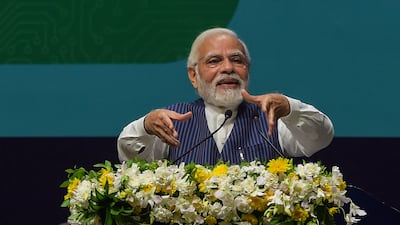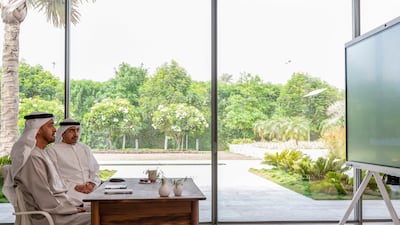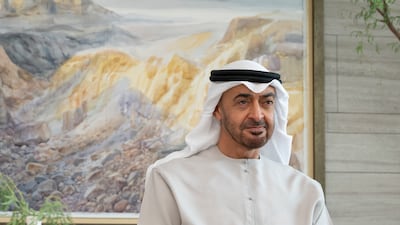India has welcomed the UAE’s decision to invest $2 billion in agricultural food parks across the country and announced its intention to ensure the project’s successful operation, as the first I2U2 summit kicked off on Thursday.
The UAE announced the project at the inaugural summit of the newly formed I2U2 bloc — a group that includes India, Israel, the UAE and the US — which took place during US President Joe Biden's visit to Israel.
The event was attended by Mr Biden as well as UAE President Sheikh Mohamed, Israeli Prime Minister Yair Lapid and India's Prime Minister Narendra Modi.
The I2U2 is a new framework that aims to create joint investments and initiatives in water, energy, transport, space, health and food security in the four member countries.
India’s Foreign Secretary Vinay Kwatra said the proposed agricultural project would maximise crop yields, enhance farmer incomes and contribute to food security in South Asia.
“India welcomes the project and will provide appropriate facilitation towards its successful operation,” he added.
The private sector in the US and Israel will also lend their expertise as partners in the initiative as they look to offer innovative solutions that contribute to the project's overall sustainability, Mr Kwatra said.
He also said the corridor would allow for access to strategic markets in the Gulf, starting with the UAE, and lead to significant job creation opportunities.
The food parks will be set up in the states of Madhya Pradesh and Gujarat, featuring crops such as bananas, potatoes, rice, spices.
“Some of the focus crop areas might expand depending upon the activity,” Mr Kwatra said.
The Indian government will also provide appropriate land for the project and enable farmer integration. Land acquisition in India, particularly land traditionally used for agriculture that is acquired for infrastructure development, is a tricky issue and often leads to controversy.
The leaders also announced a hybrid renewable energy project in Gujarat consisting of 300 megawatts of wind and solar capacity, complemented by a battery energy storage system.
The US has already funded a $330 million feasibility study for the project and UAE-based companies are exploring opportunities, the leaders said.
“Such projects have the potential to make India a global supply chain hub in the space of renewable energy,” Mr Kwatra said.
The I2U2 was formed in October last year and follows the signing of the Abraham Accords between Israel, the UAE and Bahrain in 2020. It will focus on issues including maritime security, infrastructure and transport in the region.
While Israel, the UAE and the US were the natural partners in the group, India’s inclusion came amid its strained relationship with China following bloody border clashes in 2020.
The South Asian nation is expanding its influence in the Asia-Pacific region amid growing competition with China, and its participation in the I2U2 bloc will further strengthen its potential alliance with global partners in the Middle East.
India shares strong strategic, historic and economic ties with the Gulf nations and Mr Modi has further strengthened the alliance between India and Gulf nations since coming to power in 2014.
“We are all good friends, too, and we all have common perspectives and common interests as well. Our co-operative framework is also a good model for practical cooperation in the face of increasing global uncertainties,” Mr Modi said during his opening remarks at the summit.
“I am confident that with I2U2, we will make significant contributions to energy security, food security and economic growth on a global scale.”









